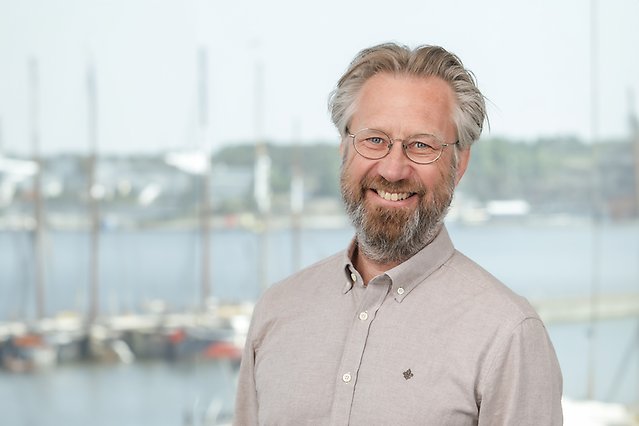""The ocean is important for everyone""
Earth is sometimes called the 'Blue Planet'. The ocean covers more than 70 % of the planet's surface. For us in Sweden, the sea is very significant. Over half of our national border is coastal. The interaction between the sea, its ecosystems, the climate and us humans is central. Today, the sea faces both challenges and opportunities, and SMHI's oceanographic research plays an important role here.

Sam Fredriksson, Head of the oceanographic research unit.
"Knowledge about the ocean is important. We know a lot about the ocean, while there is more to understand and discover about how it works. For example, our research is increasing our understanding of how eutrophication and climate change affect the ocean. We see which measures are most effective in the pursuit of a balanced ocean, which is why oceanographic research is important,” says Sam Fredriksson, head of the oceanographic research group at SMHI.
The sea has both intrinsic and extrinsic value to humans, for example for shipping, fishing and more recently as an energy source, but also for recreation. However, these human activities affect the sea and its ecosystems. Unfortunately, we have also exposed the sea to eutrophication and hazardous substances, and climate change is now having a further impact on the sea, changing water temperatures, sea levels and salinity.
'Time travel' gives scientists the answers
While we humans and our society act and change quickly, the ocean reacts slowly.
"For example, the sea level rise we are now seeing will continue for centuries, even if we were to stop all greenhouse gas emissions today. The eutrophication that peaked in the 1980s is causing more problems today than it did then. The oceans have absorbed most of the heat caused by climate change and to understand how our actions now and historically affect the ocean, its ecosystems now and in the future, we need to 'time travel'. Here, research, observations, models and future scenarios create the time machine we need to manage our oceans. We can travel forward in time to see, through different scenarios, how our actions now will have consequences in the future – and we can travel back thousands of years to understand how the oceans have evolved until today."
Focus on the seas around Sweden
The Baltic Sea, the North Sea and the Arctic are the focus of the oceanographic researchers at SMHI. They develop state-of-the-art operational ocean and ecosystem models and provide climate services and support for ocean management and planning. Much of the research is done in front of the computer, using data from observations and other models, such as global climate models, to make calculations. This requires high quality at all stages to produce good data. Research is also conducted with the help of observations.
International research team
At SMHI, oceanographic research is divided into four main areas: Ocean Climate, Ocean Environment, Operational Oceanography and Ocean Processes. The unit currently has 20 researchers from seven countries, all with specific competencies. These include physical oceanographers, marine chemists and marine biologists.

